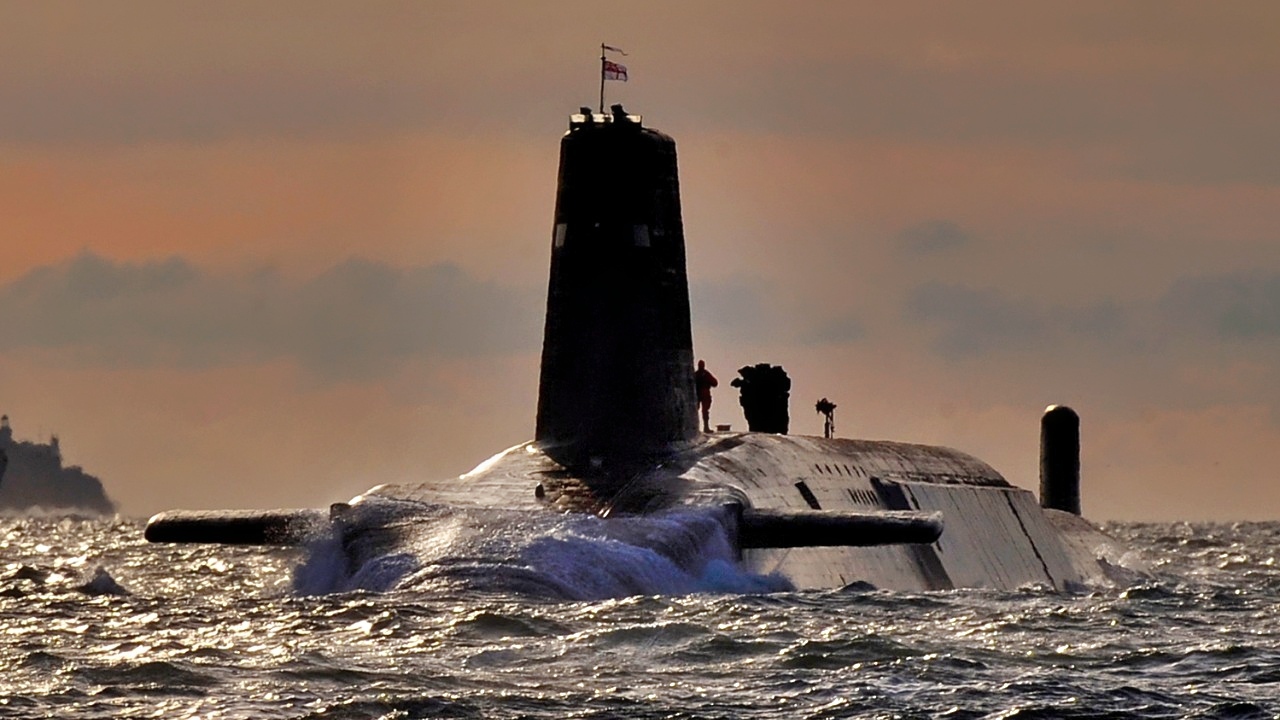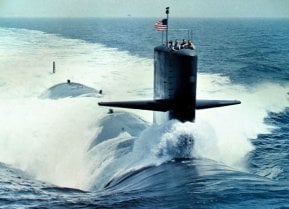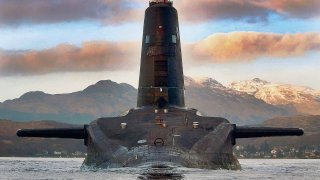The 4 Letter Word That Is Every Nuclear Submarine's 'Achilles Heel'
A recent shortage of food supplies on a Royal Navy Vanguard-class nuclear submarine revealed an unexpected vulnerability: limited food storage for extended missions. Despite nuclear-powered submarines having theoretically unlimited underwater endurance, food supplies remain a constraint.
What You Need to Know: A recent shortage of food supplies on a Royal Navy Vanguard-class nuclear submarine revealed an unexpected vulnerability: limited food storage for extended missions. Despite nuclear-powered submarines having theoretically unlimited underwater endurance, food supplies remain a constraint.

-During a recent patrol, food rationing led to crew sharing rations, with medics distributing caffeine tablets to manage fatigue. While the Royal Navy assured that "every submariner receives a nutritionally balanced diet," the situation underscores a unique logistical challenge.
-With only four Vanguard-class submarines, extended deployments have become the norm, highlighting the critical role of resupply efficiency for crew well-being and mission success.
This Royal Navy Sub Revealed Its Most Serious Achilles Heel: Food
Nuclear-powered submarines have unlimited endurance and unlimited range – and combined that means they can travel anywhere in the world while submerged, making them extremely difficult or near impossible to successfully track. The crews must endure literally months under the sea in these compact vessels, not getting to breathe fresh air or even see the sun.
However, a Royal Navy submarine put the spotlight on another serious downside to life under the sea for the crews of the nuclear-powered boats. The Sun tabloid reported that sailors on one of the Vanguard-class ballistic missile submarines – which serve as the UK's main nuclear deterrent – were forced to share rations after a resupply at sea was "scrapped for unknown reasons." The sailors even had to hand in their sweets and chocolate, while the "submariners searched for leftover food packets and cans," while the boat's "honesty shop in the canteen closed over fears of hoarding."
The situation became so dire that "medics reportedly handed out caffeine tablets amid fears tiredness could lead to a critical mistake and serious loss of life at sea."

Four Boats – One is Always on Patrol
The UK's Royal Navy operates four Vanguard-class nuclear-powered submarines, with each carrying Trident II D5 missiles. Introduced in 1994, the subs are the largest built in the UK and the third-largest vessels in the Royal Navy. Their only mission is to fire a vast amount of nuclear weapons at any targets – if ever called upon to do so.
The submarines – HMS Vanguard (S28), HMS Victorious (S29), HMS Vigilant (S30), and HMS Vengeance (S31) – were constructed between 1986 and 1999 at Barrow-in-Furness, Cumbria by the former Vickers Shipbuilding and Engineering (now BAE Systems Marine). All four are based at HM Naval Base Clyde, west of Glasgow, Scotland.
It is unclear which of those boats saw its crews face such severe rations. However, one of the four is always on patrol, and its time at sea is "constrained by food supplies," explained The Telegraph newspaper.
In March, it was reported that HMS Vengeance set a new record for the longest deployment, totaling 201 days mostly spent underwater – surpassing the 195-day record set by HMS Vigilant. The back-to-back record-breaking patrols were due to a shortage of Royal Navy vessels that serve as the UK's primary nuclear deterrent.
According to the Royal Navy, "Patrols could, in theory, last for years at a time," although originally the policy was for the submarines to only deploy for a maximum of 80 days. With just four boats available, the deployments have lasted longer.
In addition to rations, the sailors are essentially cut off from the world and can only receive a single 40-word message – known as a "family-gram" – weekly from home. Bad news, notably deaths and even break-ups, are censored, so as not to cause unneeded concern.
The Royal Navy stressed to The Sun that sailors weren't starving at least.
"Every submariner receives a nutritionally balanced diet at all times," a spokesperson told the tabloid, adding, "Robust procedures ensure crew safety at all times on missions."
Author Experience and Expertise: Peter Suciu
Peter Suciu is a Michigan-based writer. He has contributed to more than four dozen magazines, newspapers, and websites with over 3,200 published pieces over a twenty-year career in journalism. He regularly writes about military hardware, firearms history, cybersecurity, politics, and international affairs. Peter is also a Contributing Writer for Forbes and Clearance Jobs. You can follow him on Twitter: @PeterSuciu. You can email the author: [email protected].
Image Credit: Creative Commons and/or Shutterstock.


